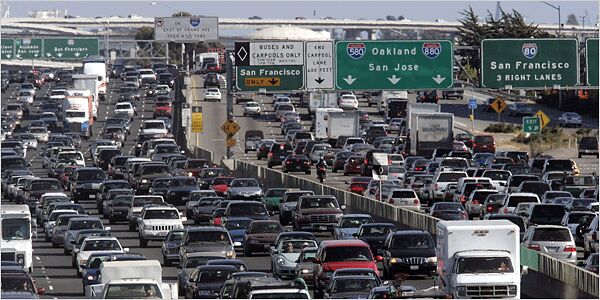EPA: CA Can Set Its Own Automotive CO2 Standards
The LA Times reports that The Environmental Protection Agency (EPA) has granted California the right to set its own, independent CO2 standards for car and truck emissions. The controversial waiver comes with a proviso: they can’t toughen the tailpipe regs—de facto mpg requirements—until 2017. Which is no big deal, ’cause the feds have adopted California’s standards until that date. “It preserves California’s role as a leader on clean air policy,” EPA Administrator Lisa Jackson said in an interview. “It feels good to know that we are able to move past — address — this issue, responding to the president’s call.” Move past, address now, kick it down the road, satisfy the President’s pre-election pledge, whatever. Meanwhile and in any case, the non-waiver waiver is something of a relief for automakers . . .
Lest we forget, Uncle Sam’s new MPG rules are so full of holes they make Swiss cheese look like a block of cement. Does this grand compromise represent their hopes for a new administration willing to lay the dirty on CA . . . later? Politics has go nothing to do with it. EPA’s Jackson says that today’s decision stemmed from a careful reading of the Clean Air Act and EPA history. “This decision was based entirely on the law,” she said, “and not at all on politics.”
More by Robert Farago


































Comments
Join the conversation